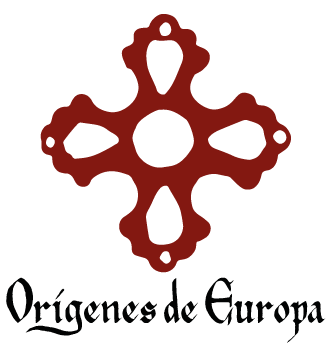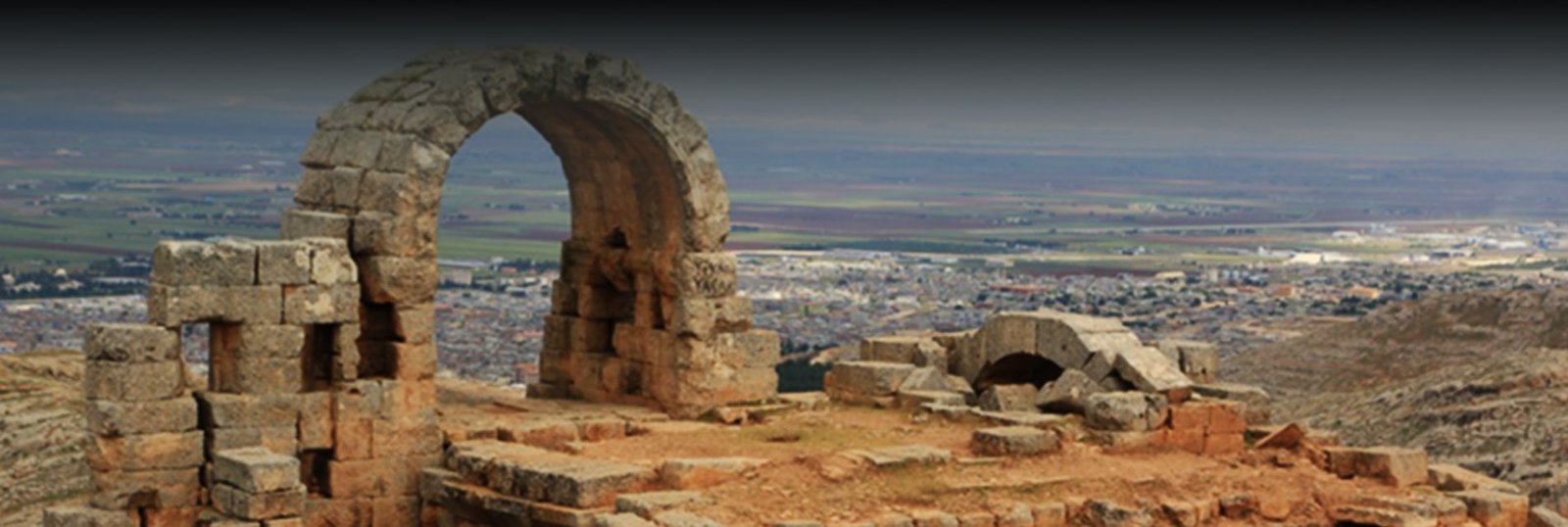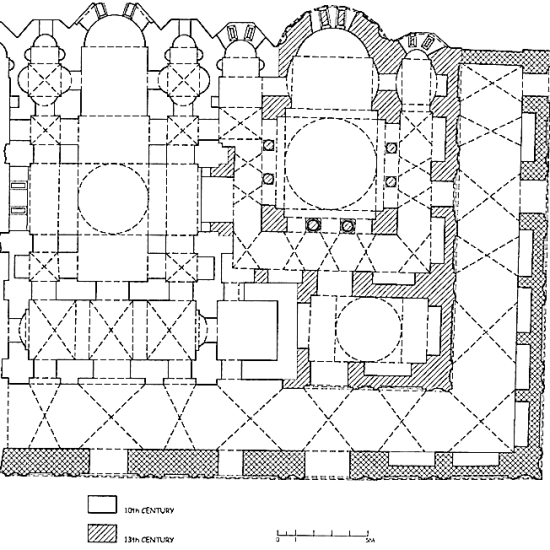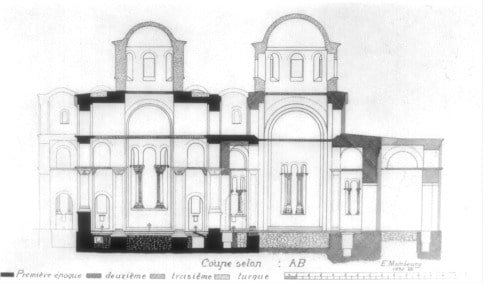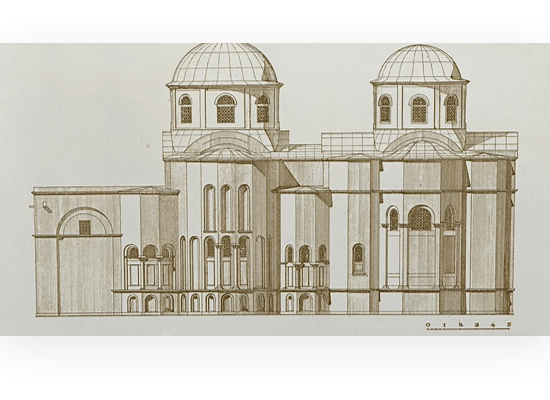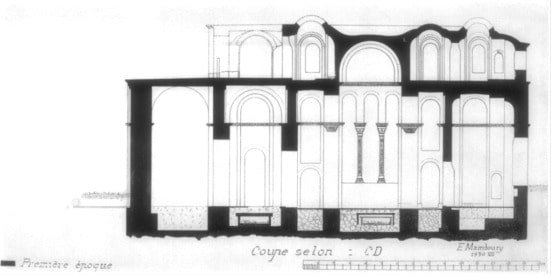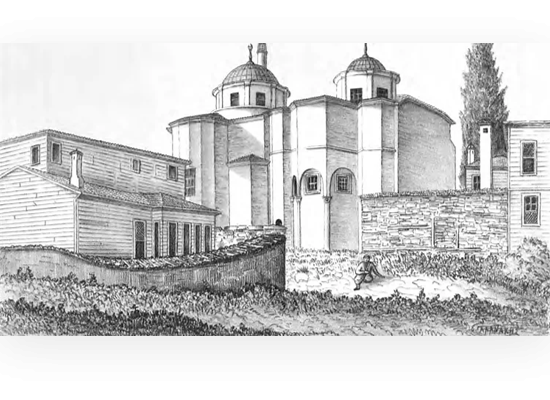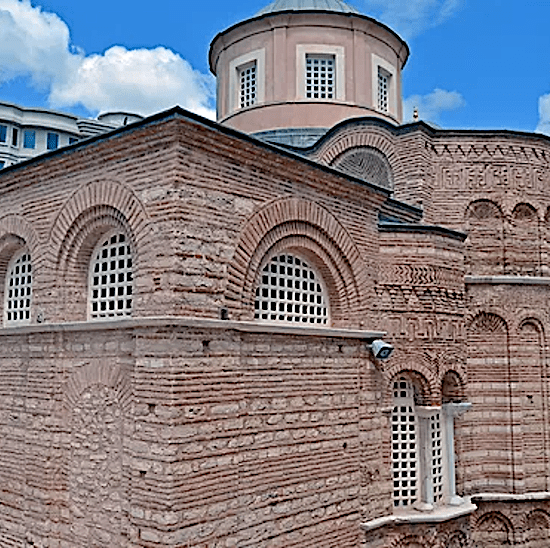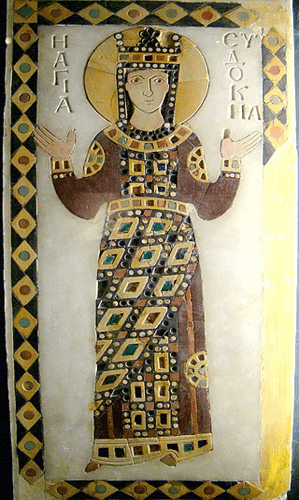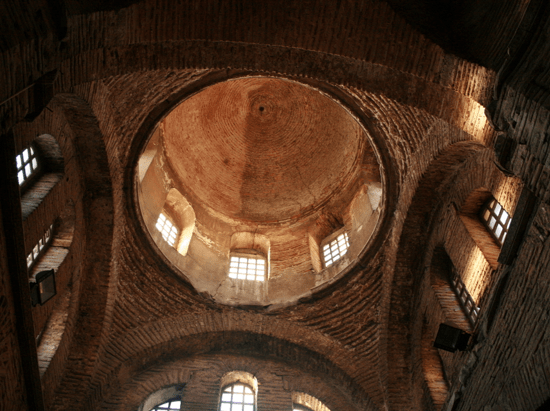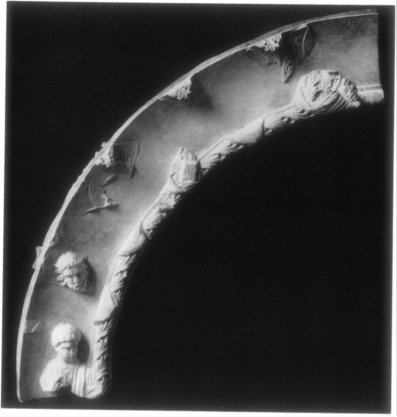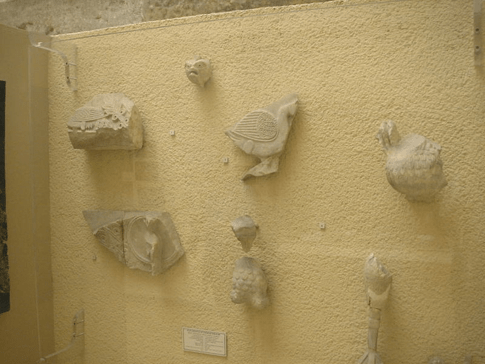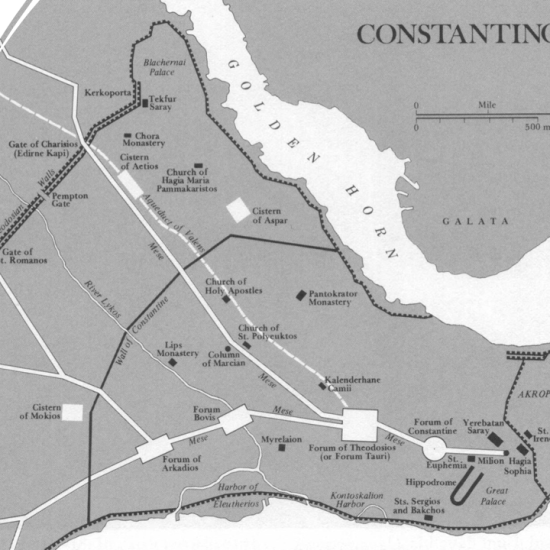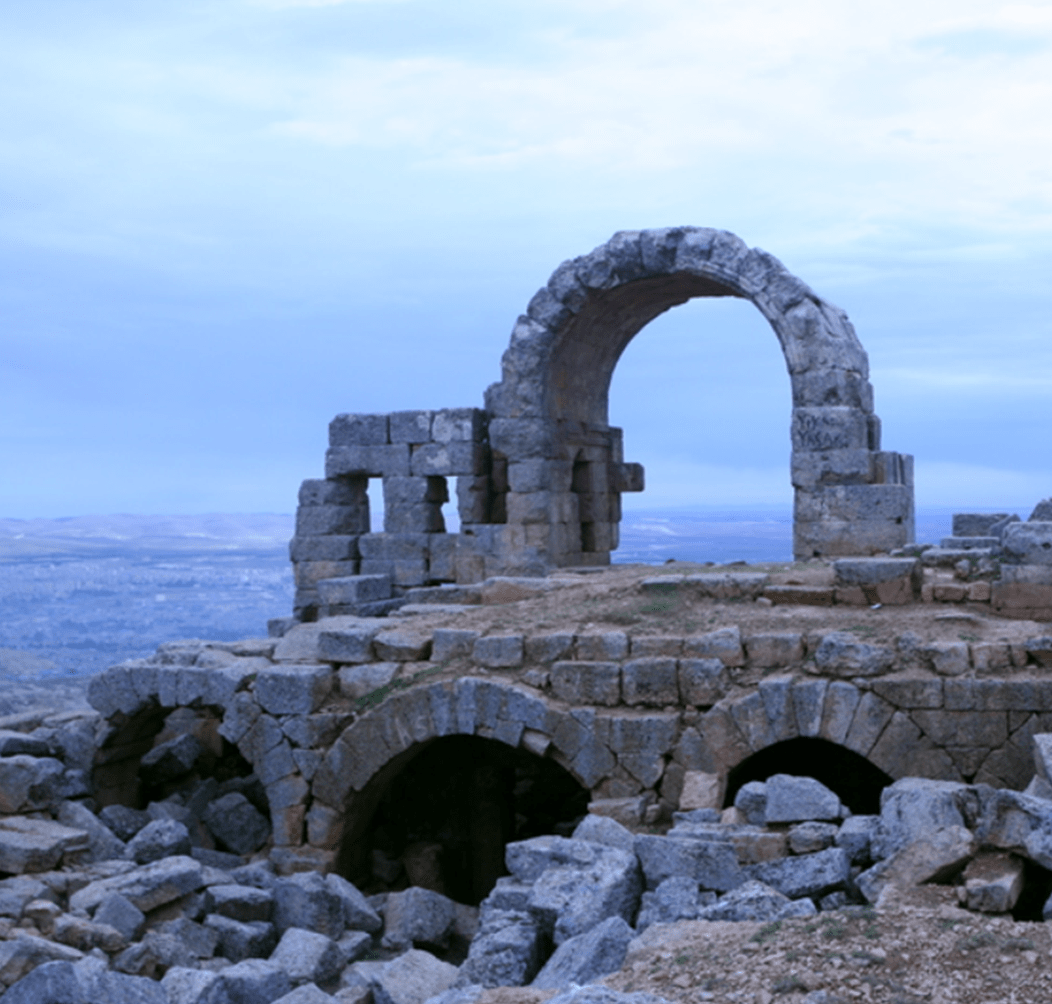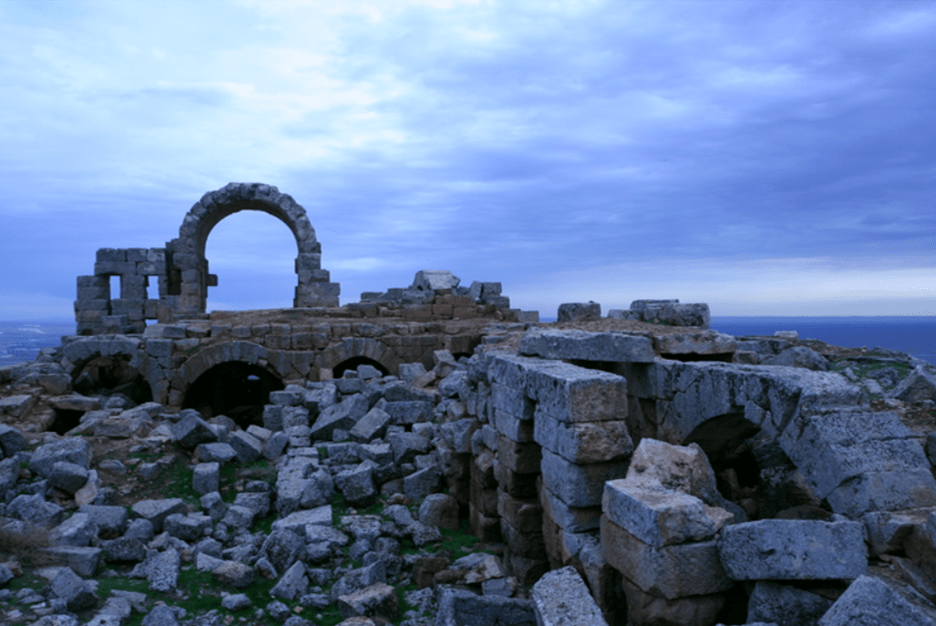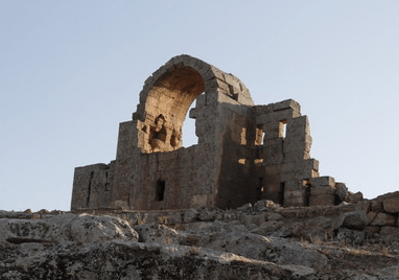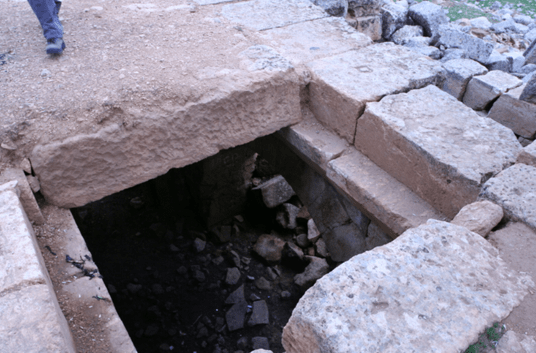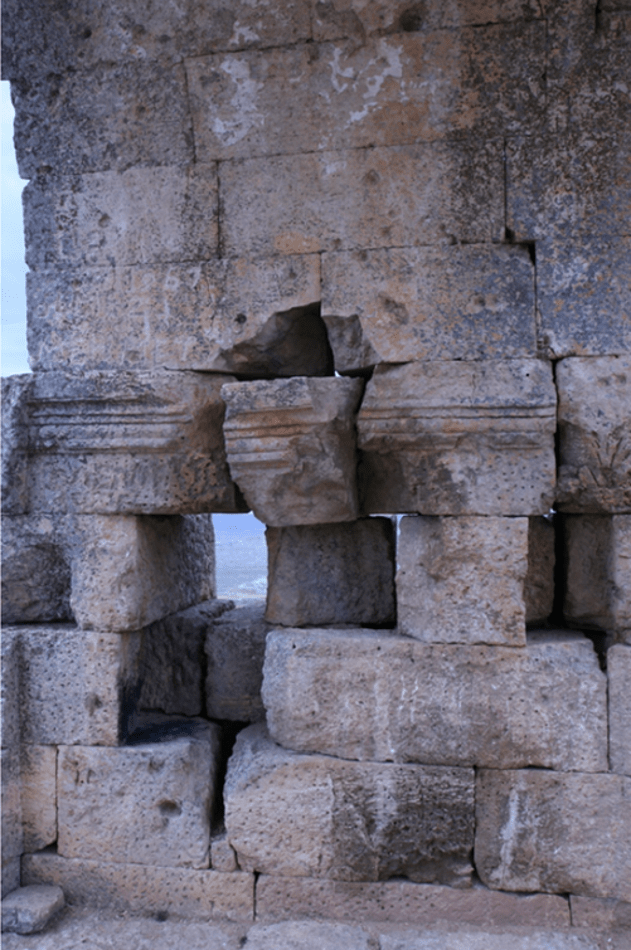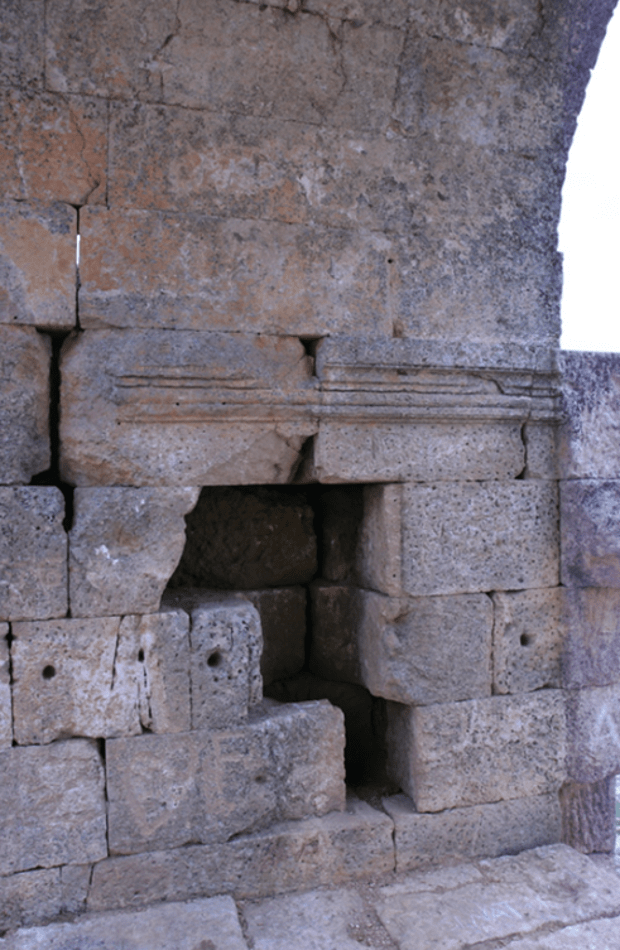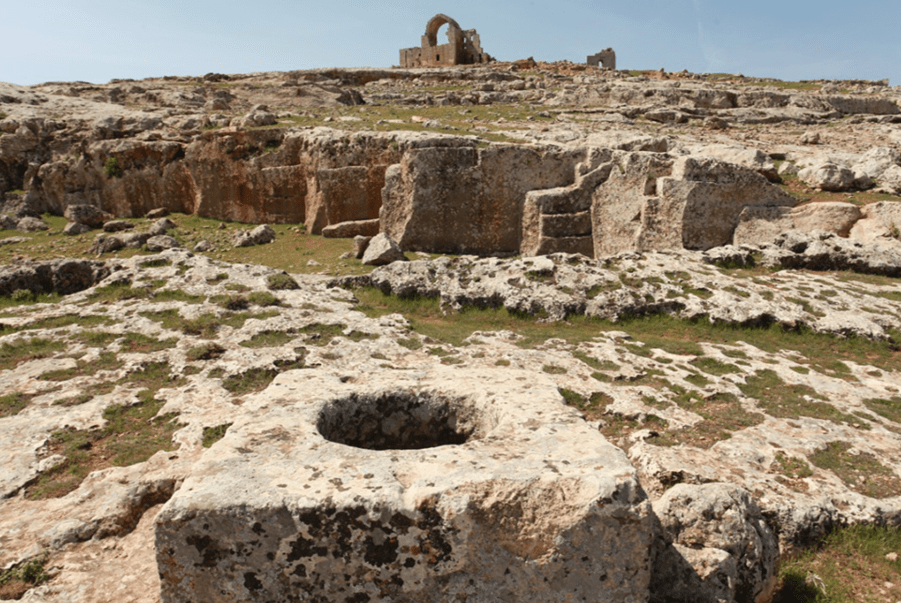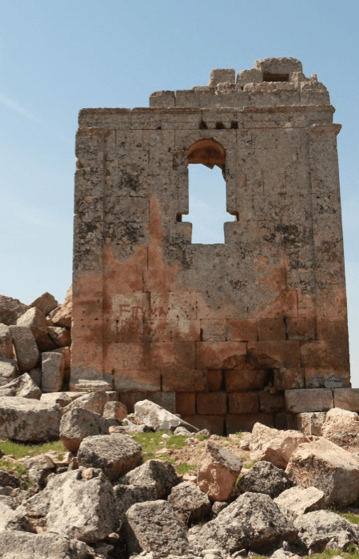Dayr Yakub
per person
Dayr Yakub is a fifth-century monastery on the edge of the suburbs to the south of the modern Turkish city of Şanlıurfa. The monastery is built on the top of a hill above an ancient quarry, which Emma Loosley claims to be “an appropriated site for a former pagan sanctuary”. The earlier site was also used as a necropolis as well as a place of sacrifice as a Palmyrene-style tomb tower, complete with a Syriac inscription (late second or third century), was incorporated into the later monastery buildings (Emma Loosley, “Dayr Yakub,” Architecture and Asceticism, 2012). The inscriptions in Syriac/”near-Palmyrene” script (Segal, J. B. Edessa ‘the Blessed City’. Oxford: Clarendon Press, 1970: 29) at Dayr Yakub underline the close relations that must have existed, in the time of the monarchy, between the leaders of Edessan society and the West.
It is commonly believed that King Nemrut, with whom the Prophet Abraham fought, used this place as a recreational area. The term «Nemrut’s Throne» [Nemrutun tahtı] is popularly used for the building in this region.
FORMAL ANALYSIS
The remains of Dayr Yakub are built in large stone blocks. Unfortunately, little else can be inferred by the monastery present status of conservation, except that the complex had a rectangular plan and at least two levels. There are arched arcosolia (niche for the dead) on the north, south and east of the burial chamber, which are covered with large lintel stones. On the left side of the entrance of this section, on the ground floor, there is the carved profile of a bird facing right. The ground floor of the two-storey main part of the great building has arched corridors and three arcosolia.
At present, cleaning works are necessary to investigate the monastery plan and its extension through the territory.
VIRGINIA SOMELLA
- MONASTERY OF DAYR YAKUB © PHOT. https://architectureandasceticism.exeter.ac.uk/items/show/132
- DARYR YAKUB, VIEW FROM WEST, FROM WATH WAS THE INTERIOR OF THE STRUCTURE © PHOT. Architecture and ascetism, https://architectureandasceticism.exeter.ac.uk/items/show/132
- DARYR YAKUB, EASTERN FAÇADE VIEW FROM S-E © PHOT. Google Maps, by Halil Şillan, 2019
- DARYR YAKUB, EASTERN FAÇADE VIEW FROM THE N-E © PHOT. https://vici.org/vici/29022/
- DARYR YAKUB, EASTERN SECTION, PRESERVED GALLERY ON THE GROUND FLOOR (PROBABLY A BURIAL CHAMBER) MISSING BLOCKS OF COVER, VIEW FROM THE UPPER LEVEL
- EXTERNAL VIEW OF THE GALLERY FROM WEST © PHOT. https://seyyahdefteri.com/deyr-yakup-manastiri-nerede-nasil-gidilir-nemrutun-tahti-sanliurfa/
- INTERNAL VIEW OF THE GALLERY WITH A WINDOW OVERLOOKING EDESSA TO THE EAST
- ENTRANCE TO THE GALLERY. UNLESS OTHERWISE SPECIFIED, THE IMAGES SHOWN IN THIS SLIDE ARE BY © PHOT. Architecture and Asceticism, https://architectureandasceticism.exeter.ac.uk/items/show/132
- ENTRANCE TO THE GALLERY. UNLESS OTHERWISE SPECIFIED, THE IMAGES SHOWN IN THIS SLIDE ARE BY © PHOT. Architecture and Asceticism, https://architectureandasceticism.exeter.ac.uk/items/show/132
- DARYR YAKUB, DETAIL OF THE CAPITALS ON THE TWO PILLARS UNDER THE EASTERN BARREL VAULT. TRACES OF DECORATIVE PATTERN OF ACCANTHUS LEAVES ARE STILL VIVIBLE © PHOT. Architecture and Asceticism. https://architectureandasceticism.exeter.ac.uk/items/show/132
- DARYR YAKUB, DETAIL OF THE SCULPTURAL DECORATION: CARVED FRAME UNDER THE EASTERN BARREL VAULT © PHOT. Architecture and Asceticism. https://architectureandasceticism.exeter.ac.uk/items/show/132
- DARYR YAKUB, DETAIL OF THE SCULPTURAL DECORATION: CARVED FRAME UNDER THE EASTERN BARREL VAULT © PHOT. Architecture and Asceticism. https://architectureandasceticism.exeter.ac.uk/items/show/132
- DARYR YAKUB, EARLIER ROCK-CUT NECROPOLIS N-E OF THE MONASTERY © PHOT. https://seyyahdefteri.com/deyr-yakup-manastiri-nerede-nasil-gidilir-nemrutun-tahti-sanliurfa
- DARYR YAKUB, EARLIER QUARRY N-E OF THE MONASTERY © PHOT. https://seyyahdefteri.com/deyr-yakup-manastiri-nerede-nasil-gidilir-nemrutun-tahti-sanliurfa
- DARYR YAKUB, TOMB TOWER INSCRIBED WITH A BILINGUAL TEXT (PALMYRENE AND GREEK), LATE SECOND OR THIRD CENTURY. N-W OF THE MONASTERY © PHOT. Şanlıurfa Büyükşehir Belediyesi, 2017, https://www.sanliurfa.bel.tr/icerik/239/624/deyr-yakup-yakup-manastiri#images-4
- DARYR YAKUB, TOMB TOWER INSCRIBED WITH A BILINGUAL TEXT (PALMYRENE AND GREEK), LATE SECOND OR THIRD CENTURY. N-W OF THE MONASTERY © PHOT. Architecture and Asceticis, 2012 https://architectureandasceticism.exeter.ac.uk/items/show/132
Tour Location
Monastery of Yakub
| Other monuments and places to visit | Reji Church [St. Petrus And St. Paulus Church] in Şanlıurfa; Germus Church of St. Jacob in Germus Village(Dağeteği); The ancient stone quarry of Bazda Maǧaralari (on the 15th and 16th km of the Soğmatar tourism road near Harran); Sumatar Harabesi, the ancient watering place and centre of a shrine to the God Sin (the Lord of the gods), 60km S-E of Şanlıurfa. |
| Natural Heritage | The 'hills of Nimrud'. south of Şanlıurfa. |
| Historical Recreations | |
| Festivals of Tourist Interest | |
| Fairs | |
| Tourist Office | |
| Specialized Guides | |
| Guided visits | From the city of Şanlıurfa. |
| Accommodations | Accommodations in Şanlıurfa. |
| Restaurants | Restaurants in Şanlıurfa. |
| Craft | |
| Bibliography | Segal, J. B. Edessa ‘the Blessed City’. Oxford: Clarendon Press, 1970. Ross, Steven K. Roman Edessa 114-242 C.E. Routledge, 2001. Keser Kayaalp, Elif. Church Architecture of Late Antique Northern Mesopotamia. Oxford Studies in Byzantium. Oxford, New York: Oxford University Press, 2021. |
| Videos | |
| Website |
| Monument or place to visit | Monastery of Yakub |
| Style | Remains of Late Antique local masonry structures, later medieval addictions. |
| Type | Monastic complex. |
| Epoch | 5th century – 1453. |
| State of conservation | Abandoned. Partially collapsed. |
| Degree of legal protection | |
| Mailing address | Keberli, 63000 Eyyübiye/Şanlıurfa, TR. |
| Coordinates GPS | 37°7'16N 38°46'28E |
| Property, dependency | |
| Possibility of visits by the general public or only specialists | Accessible to general public. |
| Conservation needs | Necessary cleaning and reinforcement operations. |
| Visiting hours and conditions | |
| Ticket amount | Free. |
| Research work in progress | |
| Accessibility | From the city of Şanlıurfa, the monastery is easily accessible by private vehicle or tours, or else it is within two hours of walking. |
| Signaling if it is registered on the route | Not registered yet. |
| Bibliography | Segal, J. B. Edessa ‘the Blessed City’. Oxford: Clarendon Press, 1970. Emma Loosley, “Dayr Yakub,” Architecture and Asceticism, 2012, © Architecture and Asceticism (architectureandasceticism.exeter.ac.uk) |
| Videos | Youtube |
| Information websites | architectureandasceticism.exeter.ac.uk sanliurfa.bel.tr vici.org |
| Location | Located in the Eyyübiye district in the center of Şanlıurfa province, 10 km S-W of the city centre of Şanlıurfa. |
